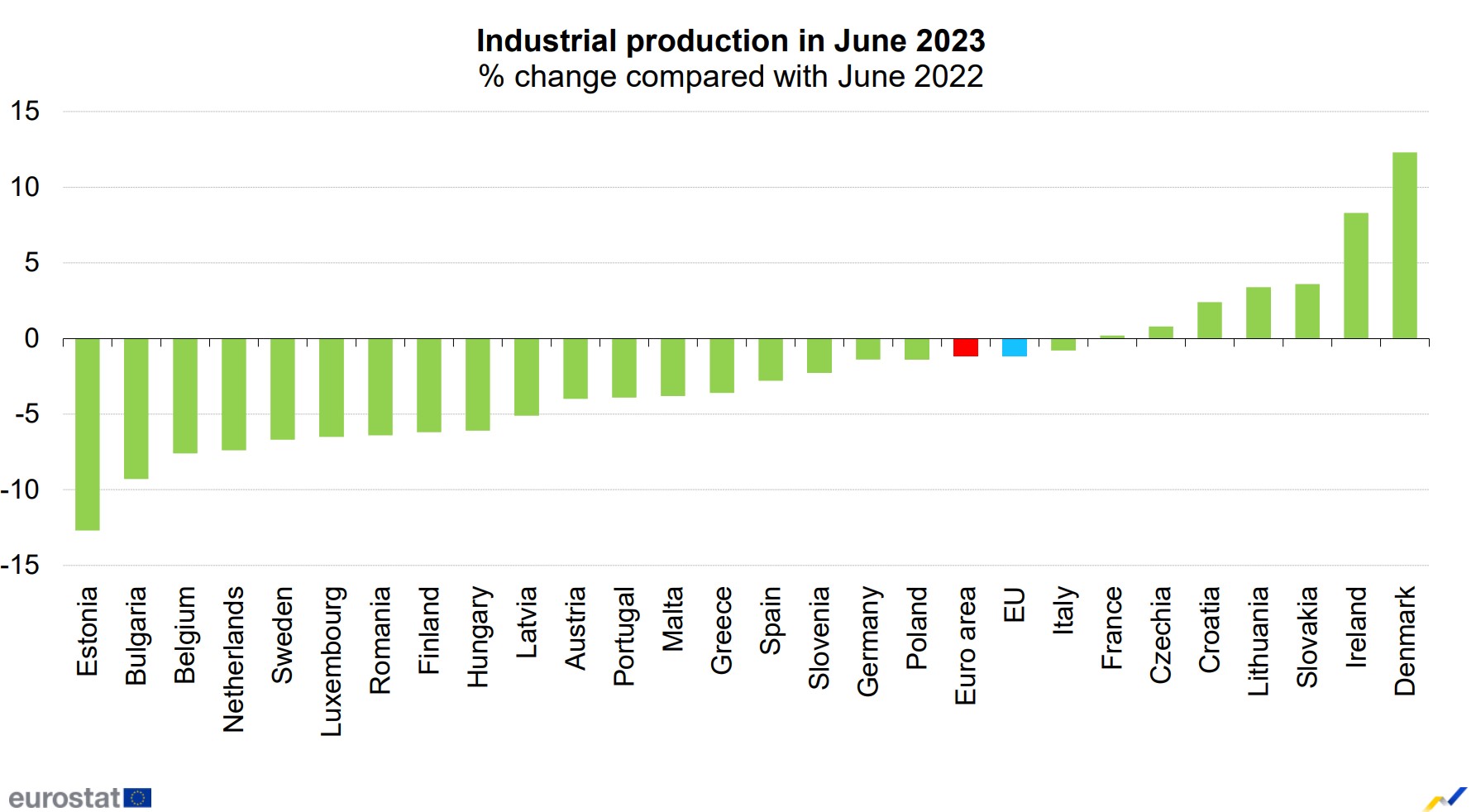June saw industrial production decline in Belgium for the third consecutive month, adding to concerns that the country is undergoing deindustrialisation on a national scale.
According to a report published by the EU's official statistics office Eurostat on Wednesday, industrial output in Belgium fell by 3.0% in June compared to May: the fourth largest decrease in the EU after Malta (3.3%), Finland (3.3%), and Sweden (5.3%).
Belgium's industrial decline contrasts markedly with much of the rest of Europe: average monthly production in the eurozone and the broader EU increased slightly (by 0.5% and 0.4% respectively).
Viewed year on year, Belgium's industrial slump was even more striking, with output down by 7.6% compared to June 2022. Within the context of the EU, this represented the third largest year-on-year decrease in the bloc, after Bulgaria (9.3%) and Estonia (12.7%).
Annual industrial production also decreased on average across the rest of Europe, falling 1.2% in both the eurozone and the broader EU area.
The end of the Old Continent?
Eurostat's findings are in line with the repeated warnings by analysts and business leaders who in recent months have highlighted the issue of high energy prices and protectionist legislation in the US. Not only a threat to Belgium, these realities risk causing lasting damage to Europe's industrial base.
Earlier this year, Bernard Delvaux (CEO of major Belgian construction company Etex) warned that without urgent government intervention an increasing number of European companies will likely relocate to the US or Asia to take advantage of lower energy costs – a possibility he described as "very dangerous for Europe".
"What is very disturbing is that while in Europe, the energy price remains three or four times that of before [the energy crisis], the United States has only had a 20% increase in the cost of energy, and Asia even less."
Related News
- 'Worrisome and unsustainable': National bank paints bleak picture of Belgian economy
- Belgium at 'real risk of deindustrialisation', leading CEO says
Delvaux added: "It is more as a citizen than as the boss of Etex that I want to sound the alarm. We are facing a real risk for the industry in Europe."
Similarly, in May the Brussels-based think tank Bruegel published a policy brief urging EU leaders to take immediate action to "avoid the irreversible large-scale relocation abroad" of Europe's key industries.
"The massive increase in electricity and gas prices implied a drastic loss of competitiveness for European energy-intensive companies in 2022, and some of the effect is expected to persist," Bruegel noted.


